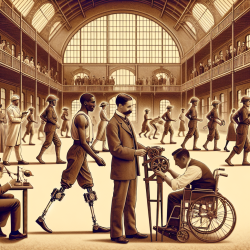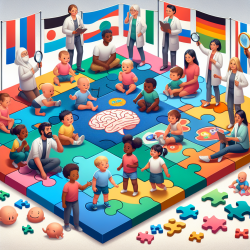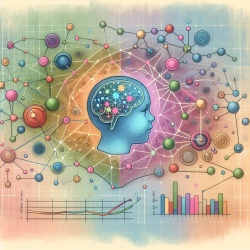The journey of veteran rehabilitation has evolved significantly since the days of World War I. The establishment of the Reconstruction Hospital System marked a pivotal shift in how wounded soldiers were cared for and reintegrated into society. Today, therapists can draw valuable lessons from this historical transformation to enhance their practice and better serve their clients.
The Evolution of Veteran Care
The United States' entry into World War I prompted a reformation of veterans' entitlements. This shift aimed to replace traditional pensions with medical care and rehabilitation services through the Reconstruction Hospital System. While initially intended as a temporary measure, these reforms laid the foundation for the modern veterans' health care system we know today.
One key takeaway for therapists is the importance of community support in the healing process. The success of these reforms relied heavily on the communal values expressed by veterans themselves. Publications produced by and for soldiers played a crucial role in fostering a sense of agency and empowerment among the veteran community.
Lessons for Modern Therapists
As therapists, understanding the historical context of veteran care can provide valuable insights into effective therapeutic practices. Here are some key lessons that can be applied to modern therapy:
- Community Engagement: Just as trench journals and hospital newspapers provided a platform for veterans to express themselves and build community, therapists can encourage clients to engage with supportive communities. This fosters a sense of belonging and shared experience, which is vital for healing.
- Empowerment through Agency: The agency expressed by veterans in reforming their entitlements underscores the importance of empowering clients in their therapeutic journey. Therapists should strive to create an environment where clients feel heard and involved in their treatment plans.
- Cultural Sensitivity: Understanding the cultural and historical context of clients' experiences can enhance therapeutic rapport and effectiveness. Therapists should be aware of the unique challenges faced by veterans and other marginalized groups.
- Holistic Care Approach: The integration of medical care with vocational training in Reconstruction Hospitals highlights the benefits of a holistic approach to therapy. Addressing physical, emotional, and social needs can lead to more comprehensive healing.
Encouraging Further Research
The story of WWI Reconstruction Hospitals is a testament to the power of reform and innovation in healthcare. For practitioners interested in further exploring this topic, diving into historical research can provide a deeper understanding of how past practices shape current methodologies.
By studying historical models like those from WWI, therapists can gain inspiration for developing new strategies that address contemporary challenges in mental health care.
To read the original research paper that inspired this discussion, please follow this link: Reforming the veteran: propaganda and agency in the First World War Reconstruction hospitals.










